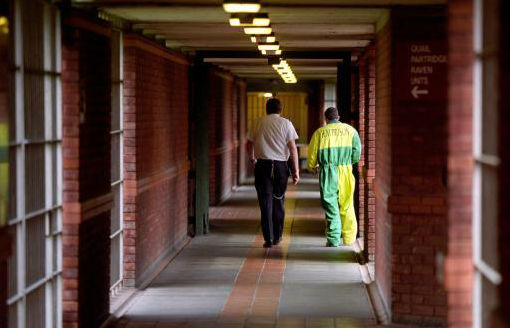The Catholic bishop with responsibility for prisons has welcomed the publication of a new report on the importance of strengthening prisoners’ family ties to reduce re-offending and inter-generational offending. Bishop Richard Moth said he hopes the government will act on the report’s recommendations.
Lord (Michael) Farmer’s report, commissioned by the Secretary of State for Justice to investigate what support is most beneficial for men in prison and their families, highlights the significant role families play in supporting rehabilitation and makes a number of practical recommendations.
Bishop Richard Moth said it is “encouraging that this report recognises the importance of supporting families themselves, including the great number of children with a parent in prison, who are all too often the forgotten victims of crime”. He added that he was grateful the report had acknowledged the contribution of faith groups and said that “the Catholic community will, of course, continue to play our part”.
Research from the Ministry of Justice shows prisoners who receive visits from a family member are 39 per cent less likely to re-offend. This makes family relationships “the golden thread” in reducing reoffending, improving prisoner wellbeing and keeping the public safe, said the study. Lord Farmer’s report noted that although education and employment are “repeatedly cited as mainstream rehabilitation activities in offender management that all prisoners are expected to undertake”, family work should now be seen as “the third leg of the stool that brings stability and structure to prisoners’ lives, particularly when they leave prison”.
Fr Patrick Cope, senior Roman Catholic chaplain for Her Majesty’s Prison and Probation Service, said the report’s recommendations were very positive, adding that it is the role of churches and parishes to “support families while their loved ones are in custody and when it comes to resettlement”, which is often a time when “fractured families” most need help.
The Ministry of Justice said it has already started developing a strategy which will take forward recommendations from the review, including increasing prison officer numbers by 2,500, giving governors the budget and flexibility to spend their resources on helping prisoners keep family ties and piloting relationship performance measures to deliver more consistency in areas like visitations across the whole prison service.
Meanwhile, there are currently more Catholic than Anglican inmates for the first time in England and Wales, according to The Times. At the end of June 2017, only 17 per cent of prisoners (14,691) were Anglican, down from 50 per cent (21,600) in 1993, compared to the rise of Catholic inmates from 7,766 to 14,961 over the same period, figures from the Ministry of Justice revealed. This, the Times report added, calls into question whether the tradition of an Anglican chaplain general should remain or and whether this should now be open to other faiths.
PICTURE: A warden accompanies a prisoner in Feltham Young Offenders institution, London



 Loading ...
Loading ...